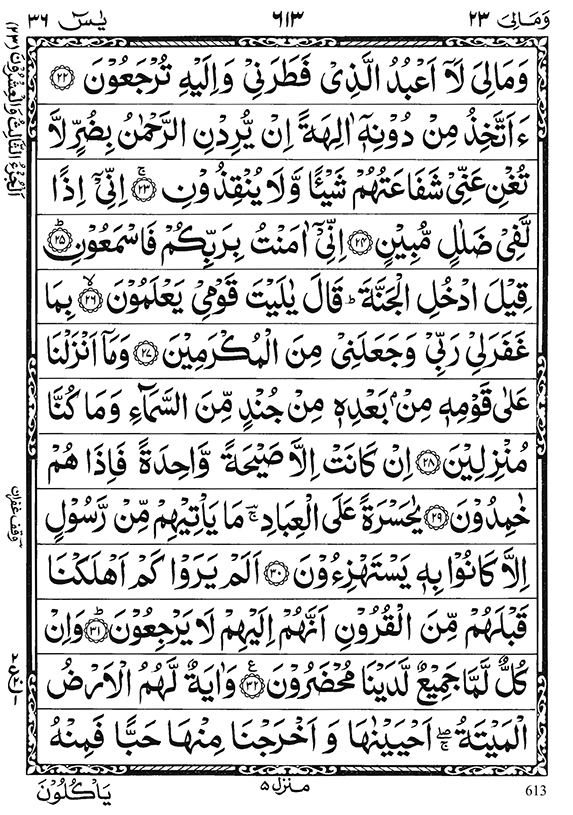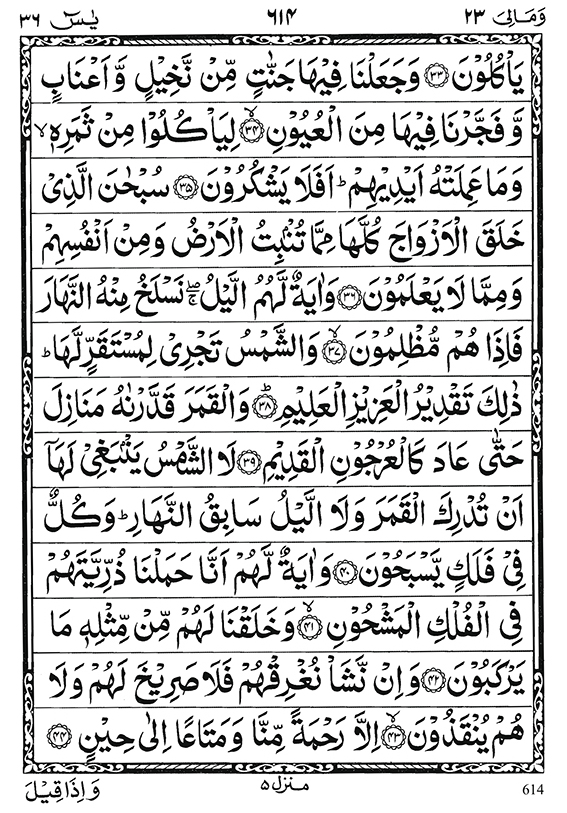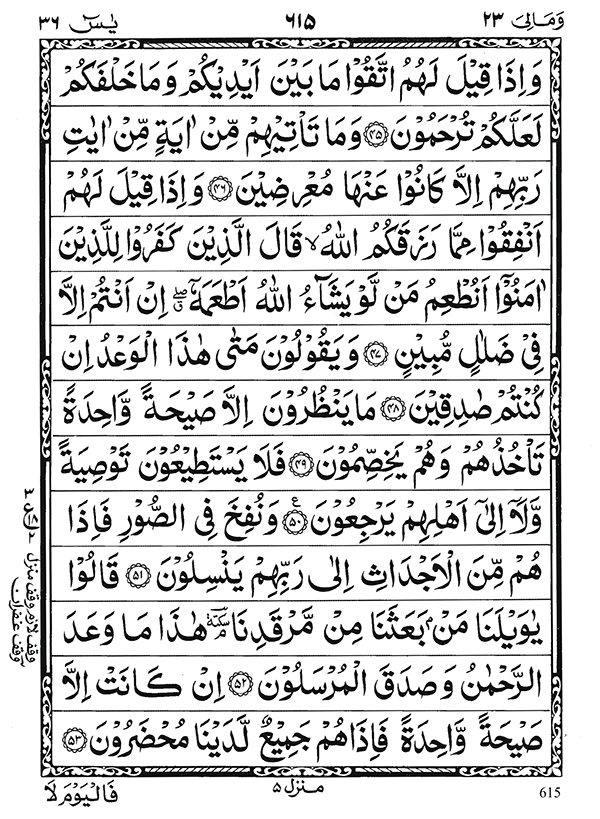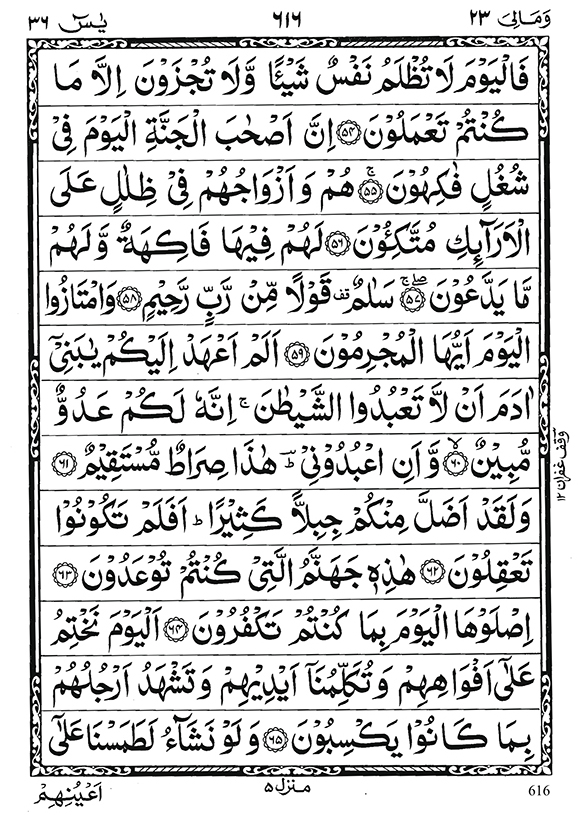Surah Yasin








Surah Yasin (Arabic: يس) is the 36th chapter of the Holy Quran and holds a special status in the hearts of Muslims around the world. Known as the “heart of the Quran,” it is often recited for blessings, guidance, and spiritual protection. Its rhythmic verses, deep theological messages, and emotional resonance make it one of the most memorized and frequently recited Surahs in Islamic tradition.
This comprehensive article will explore the structure, themes, virtues, and interpretations of Surah Yasin in detail.
1. Basic Information About Surah Yasin
| Feature | Detail |
|---|---|
| Surah Number | 36 |
| Number of Verses (Ayat) | 83 |
| Place of Revelation | Makkah (Makki Surah) |
| Juz (Para) | Starts in Para 22 and ends in Para 23 |
| Total Rukus | 5 |
| Revealed Before/After Hijrah | Before (Makki Surah) |
Being revealed in Makkah, the Surah primarily addresses themes of monotheism, resurrection, and the message of Prophet Muhammad ﷺ.
2. Quranic Language and Flow in Surah Yasin
Surah Yasin opens with the disjointed Arabic letters “Ya-Sin (يس)”, a style known as Huruf Al-Muqatta’at. While the precise meaning of these letters remains unknown, scholars believe they hold deep symbolic significance and may serve to draw the listener’s attention to the divine message that follows.
The Surah has a beautifully rhythmic flow with short, impactful verses that leave a strong emotional impression. Its unique linguistic style enhances memorability and spiritual engagement.
3. Thematic Breakdown of Surah Yasin
Verses 1–12: Affirmation of the Prophet’s Message
- These verses emphasize the divine origin of the Quran.
- It establishes the truth of the prophethood of Muhammad ﷺ.
- The Quran is described as a guide for those with faith and humility.
- Warning is issued to disbelievers who turn away from divine guidance.
Verses 13–32: The Parable of the Messengers
- A powerful allegory is narrated about a town to which messengers were sent.
- The people initially reject them, showing arrogance and disbelief.
- A righteous man (believed by some scholars to be Habib al-Najjar) comes running from the farthest part of the town to support the messengers, urging the people to believe.
- His death and immediate entry into Paradise is described as a reward for his faith.
Verses 33–44: Signs of God in the Natural World
- These verses reflect on the signs (Ayat) of Allah in nature.
- Examples include the alternation of night and day, growth of plants, and the celestial bodies.
- These signs are used to appeal to the intellect and soul of humans to recognize the Creator.
Verses 45–68: The Reality of Resurrection
- The Day of Judgment is described with vivid detail.
- The fate of both believers and disbelievers is outlined.
- Believers are promised peace and Paradise, while disbelievers are condemned.
Verses 69–83: Divine Power and the Reality of Death
- Allah’s supreme power over life and death is reaffirmed.
- The Quran is declared not to be poetry, but divine truth.
- It concludes by emphasizing God’s ability to resurrect and judge all beings.
4. Tafsir (Explanation) of Key Verses
Verse 12:
“Indeed, it is We who bring the dead to life and record what they have put forth and what they left behind…”
This verse confirms that Allah not only revives the dead but also records all deeds — even those indirectly caused, such as the influence one leaves behind. It highlights the importance of both actions and legacy.
Verse 20–27:
The story of the believer who supported the messengers reflects immense courage and faith. His sincerity is rewarded with immediate entry into Paradise after martyrdom.
Verse 58:
“Peace! A word from a Merciful Lord.”
These words are believed to be directly spoken by Allah to the believers on the Day of Judgment — a powerful and comforting promise.
5. Significance and Benefits of Reciting Surah Yasin
Surah Yasin holds a deeply spiritual role in Muslim life. Its recitation is often linked to major events, emotional states, and specific intentions.
5.1 Spiritual Benefits
- Brings peace to the heart.
- Offers hope in times of sorrow.
- Encourages reflection on life and death.
- Strengthens belief in the Hereafter.
5.2 Benefits at the Time of Death
- It is traditionally recited in the presence of a dying person.
- It eases the process of soul departure.
- Offers comfort and mercy.
5.3 Daily Recitation
- Many hadiths recommend daily recitation of Surah Yasin for protection and barakah (blessing).
- Reading it in the morning is believed to bring ease for the entire day.
6. Hadiths Regarding Surah Yasin
Hadith 1:
“Everything has a heart, and the heart of the Quran is Yasin. Whoever reads it, Allah will record for him the reward of reading the Quran ten times.”
— Sunan Tirmidhi
This hadith emphasizes the spiritual richness and centrality of Surah Yasin within the Quran.
Hadith 2:
“Recite Yasin on those who are dying.”
— Abu Dawood
The recitation of Yasin at the time of death helps ease the transition of the soul from this life to the next.
Note on Authenticity:
While the virtues of Surah Yasin are widely accepted in the Muslim world, scholars differ on the strength of some hadiths. Nevertheless, the spiritual benefits observed by generations of Muslims are undeniable.
7. Lessons and Moral Teachings
7.1 Faith Over Logic Alone
Surah Yasin invites humans to use both their intellect and heart. Despite witnessing countless signs, those with arrogance remain blind to the truth. True faith requires humility.
7.2 Power of the Quran
Surah Yasin declares the Quran as a divine revelation, full of wisdom and guidance. It is not poetry or myth, but the Word of God.
7.3 Life and Death
The Surah reminds us of our mortality and the reality of the Hereafter. Life is temporary; accountability is inevitable.
7.4 Prophetic Mission
It shows the struggle of messengers and the rejection they often face, yet they persist in conveying God’s message.
8. Common Uses and Cultural Practices
In many cultures, Surah Yasin is recited:
- On Fridays.
- During funerals and burials.
- On special occasions for blessing.
- For healing and spiritual protection.
While these practices are not explicitly prescribed in the Quran or Sahih Hadith, they are rooted in generations of Islamic tradition.
9. Surah Yasin in Modern Times
In today’s fast-paced world, Surah Yasin serves as a spiritual anchor. It helps:
- Ease anxiety and depression.
- Reconnect with Allah during times of struggle.
- Serve as a daily dose of divine wisdom.
Digital apps, YouTube recitations, and translations in various languages have made it even more accessible.
10. Summary of Key Points
| Feature | Details |
|---|---|
| Surah Number | 36 |
| Verses | 83 |
| Juz | 22–23 |
| Main Themes | Tawheed, Resurrection, Prophethood, Accountability |
| Virtues | Forgiveness, peace, reward, spiritual upliftment |
| Best Times to Recite | Mornings, Fridays, during illness, before death |
11. Final Thoughts
Surah Yasin is a timeless chapter of the Quran that continues to inspire, heal, and guide millions. It speaks to the core of human existence — reminding us of our origins, purpose, and destination. Whether recited aloud or reflected upon in silence, its words carry weight and wisdom.
Every Muslim is encouraged not only to recite Surah Yasin but also to internalize its teachings and apply its lessons in daily life.
Tip for Memorization
If you wish to memorize Surah Yasin:
- Start with 5 verses per day.
- Use audio recitations for pronunciation.
- Understand the meaning alongside memorization.
- Repeat each verse multiple times.
- Revise every morning and evening.
